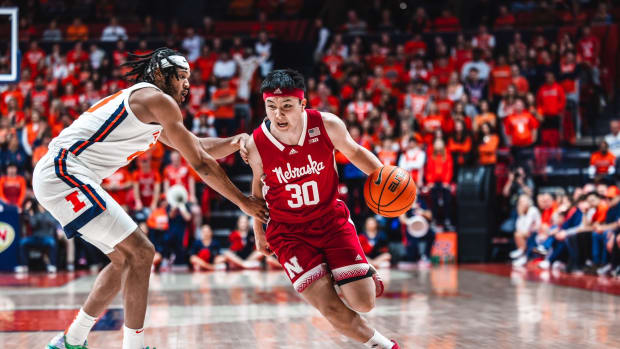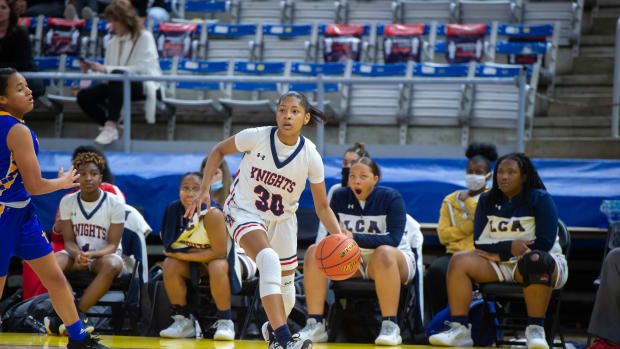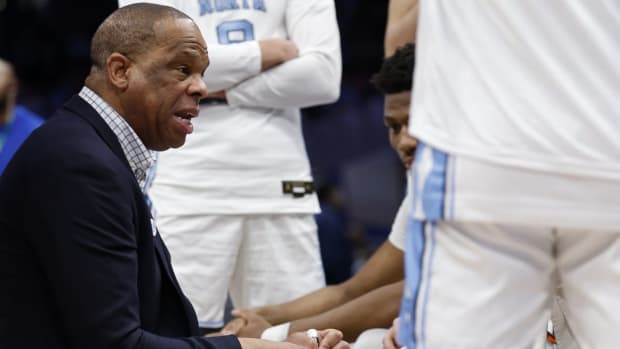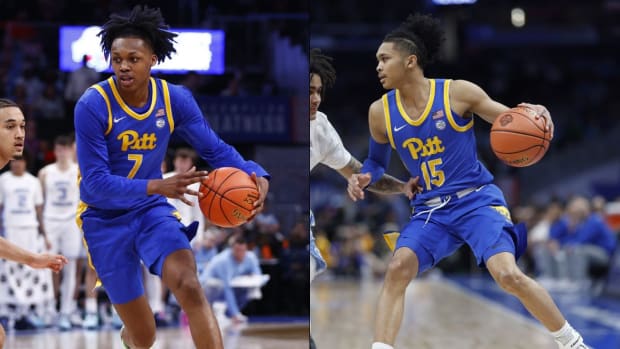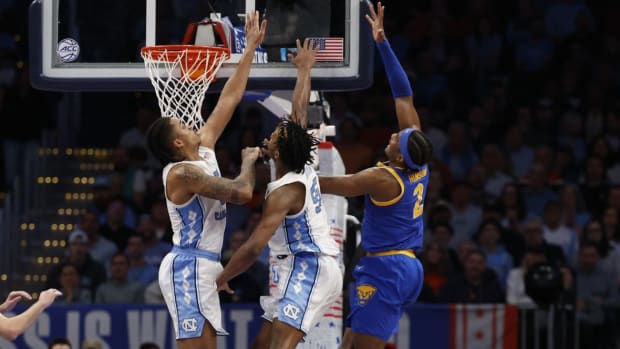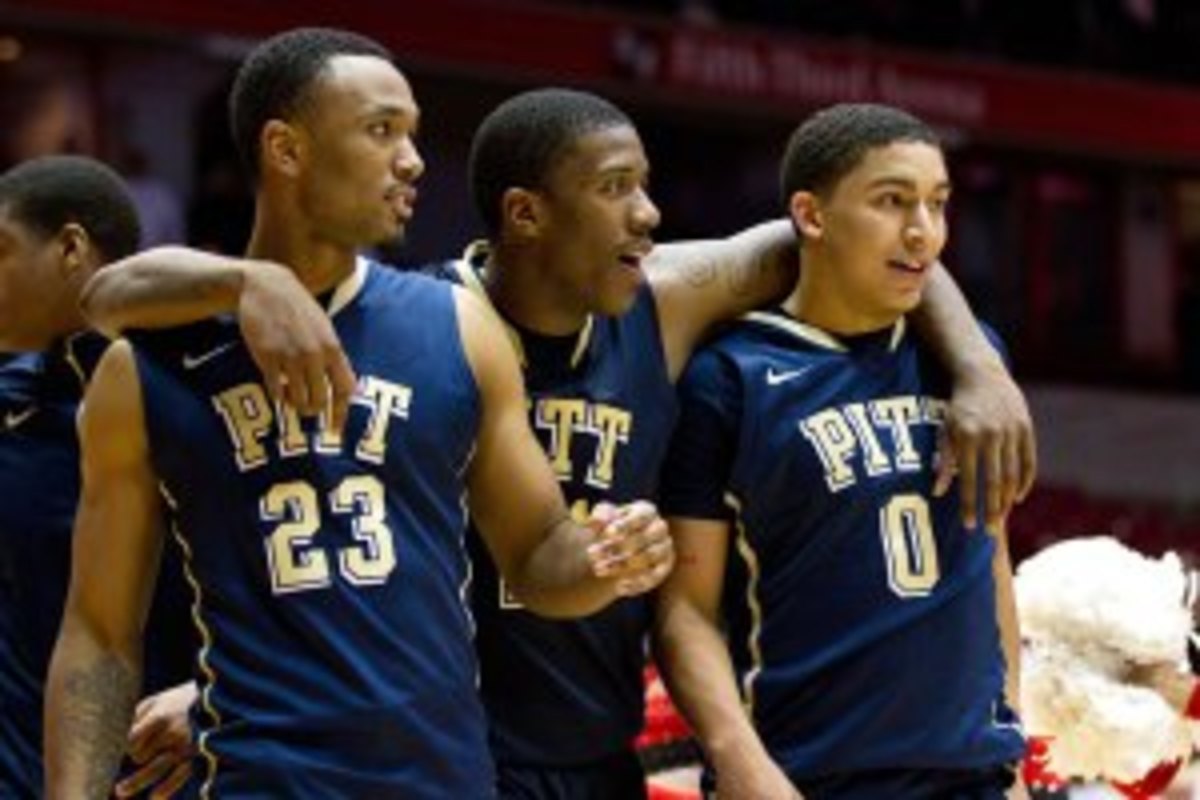
Adventures in Waiverland: Where should the NCAA be involved?
Trey Ziegler (23) was allowed to transfer from CMU after his father was fired as the head coach. (Icon SMI)
Maybe it's because we have been in the deadest of dead news periods for college basketball, but the topic of NCAA transfer waivers has become indisputably hot. The discussion about the NCAA's seeming inability to use common sense and/or consistency in its waiver decisions has grown so heated that even ESPN's Dick Vitale has regularly taken to Twitter to decry several specific situations that seem unjust.
The problem for the NCAA is that often these waiver cases don't fit into discrete, easy boxes, even when it appears there's precedent that would apply. There are numerous issues at play that make this a much more complicated discussion and make many individual cases really difficult to interpret.
Two situations in particular have folks up in arms: 1) The hardship-waiver denial for Rutgers transfer Kerwin Okoro, who had two family members die within a year and wanted to move closer to his remaining family; and 2) The APR eligibility-related denial of Rakeem Buckles' potential move from Florida International to Minnesota, even though one of his FIU teammates made the same move and was given immediate eligibility.
Relating to the former, ESPN.com's Dana O'Neil authored a quick piece on Friday that echoes the feelings of many in the media, that the NCAA shouldn't be involved in judging levels of hardship. I agree with that. It's an impossible situation for the NCAA to place itself in. When you have "hardship" waivers granted in cases like Trey Ziegler, who moved from Central Michigan to Pitt because his father, the head coach at CMU, was fired, but players like Okoro are denied, it calls into question the purpose of the entire subsystem. As heartless as it may seem on the surface, the NCAA probably should do away with these hardship waivers.
Perhaps more convoluted is the case of Buckles, who suffered multiple knee injuries in his career and never actually played a minute at FIU after transferring initially from Louisville after three seasons there. Rick Pitino, father of former FIU and now Minnesota head coach Richard Pitino, was Buckles' coach at Louisville and has gone on record saying Buckles had excellent grades at Louisville and wonders why his waiver was not granted. Adding to the furor is former FIU teammate Malik Smith being allowed to make the same move to Minnesota that Buckles wants. Also noteworthy, FIU's APR issues were created under former head coach Isiah Thomas, not Richard Pitino.
Here is Rule 14.7.2 (e), the relevant portion of the NCAA rule book concerning APR-related transfers:
(e) On the recommendation of the Committee on Academic Performance, for a student-athlete who transfers to a member institution to continue the student-athlete's opportunity for full participation in a sport because the student-athlete's original institution is ineligible for postseason competition, pursuant to the Academic Performance Program, that would preclude the institution's team in that sport from participating in postseason competition during all of the remaining seasons of the student-athlete's eligibility, provided the student-athlete would have been academically eligible had he or she remained at his or her original institution.
In first reading, it seems like it should be a fairly clear-cut case for Buckles, but the first half of the initial sentence is the meaningful part: "On the recommendation of the Committee on Academic Performance." What Buckles' situation implies is that the full Committee on Academic Performance (CAP), a 15-person group which reports to the Division I Board of Directors and oversees all of the NCAA's Academic Progress Plan regulations and changes, found something in Buckles' case that it couldn't approve, and the subcommittee on appeals agreed with that initial determination.
If you suffer from insomnia or like reading legalese, this University of Tennessee APP program manual describes all of the CAP's responsibilities.
The discussion of Buckles' waiver request fits nicely into a Friday column written by Bylaw Blog honcho John Infante, in which he writes that when people claim they want consistency, they really want 'fairness' from the NCAA. And the concept of fairness is skewed by the NCAA's lack of transparency in making decisions such as Buckles'.
Infante's position is correct -- the NCAA doesn't do itself any favors with its opaque decision-making, but outsiders often jump to conclusions about consistency when it fact the NCAA is being quite consistent with its decision-making. They're just not able to (or willing) to share exactly why it's consistent, leaving the media and others to piece things together and draw conclusions.
By any standard of "fairness," the decision on Okoro seems ridiculous. A coach firing or a sick relative is hardship, but recently deceased relatives is not? That's why the NCAA should get out of that particular line of business. If a player's family needs him closer to home, not playing basketball for a season may be a plus.
As for Buckles? As much as I chide the NCAA for its outdated macro purpose, I don't think anyone believes individual committees are just making things up when they consider waiver appeals. There are rules, and subrules, and nuances in those rules, and while you may not like them, those are the rules. So while it may look from the outside like a silly determination, there has to be something else involved in this particular case that would make it different from Smith's.
should

